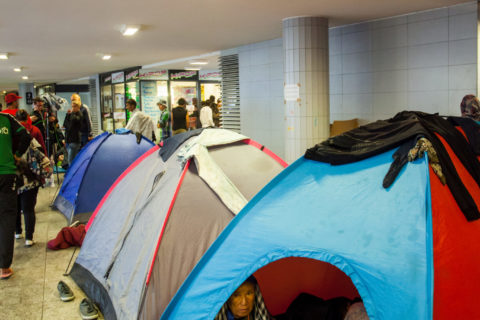This is part of RWC blog series on employability of young people. With these pieces and as a young researcher, I will try to pass on my insights and experience aiming to give a guideline to all young professionals who are seeking information on how to start their career in the field of market research.
By Helene Protopapas
In my previous post I addressed the problem of attracting young professionals to the industry and how to overcome it, arguing that the best touch-point is the university, because it is the first step of the journey for every future research leader. I also argued that businesses have a crucial role to play in educating young people by regularly visiting academic institutions and teaching their practices to undergraduate and graduate students.
In this post, I am going to share a personal experience aiming to illustrate the value of learning from real-work practices by business professionals in-class and furthermore to support my argument on businesses promoting widely the industry through transmitting their knowledge and practices at schools.
Most people choose the same academic institution for their undergraduate and graduate studies but luckily enough I had the opportunity to experience studying in two different schools. Looking back and comparing the teaching materials and methods between the two universities, I can only recall the practical cases and the projects. Theoretical models were great and provided me with the basis of a solid learning background but when it comes now to real everyday work, I struggle to associate tasks with theories that I have read in a textbook. On the contrary, I still remember with glory and excitement all these cases and projects I worked on real businesses.
My post-graduate school was very innovative compared to my under-graduate school, in terms of preparing the students for the professional life after graduation, through maximum exposure to the business world. The school invited businesses to campus every week to discuss their activities and career opportunities for students. Executives were also invited to teach part or an entire module with their business practices, aiming to transmit their knowledge and specialization in an area that would be valuable for the new generation of research professionals and future leaders. In my year there were a number of modules taught by professional executives that gave me the opportunity to experience at first-hand the knowledge created within the business that has strengthened my expertise. In fact, these are now the only modules I recall and associate with the industry on my everyday work life.
Furthermore, the school in collaboration with industry leaders and brands, organized a number of business challenges at school, where all students of my year participated in groups aiming to generate complete research projects on a topic and brand given. The winning team in every challenge was offered a complimentary prize by the business that hosted the challenge. From a business perspective, the purpose of this initiative run by young professionals who are ready to bring in new fresh ideas, is to innovate and to raise exposure among the new generation of professionals. From an academic perspective, students are inspired to innovate on a real work project that has actual impact for the business and the wider society creating as well an unforgettable experience for themselves.
The average length of the challenges was 12-13 weeks, which was enough time throughout the semester to cover all materials needed for the challenge with lectures and meetings on a weekly basis. The project objectives were determined at week 1, followed by students’ group-executive supervisor discussion and assessment for every stage of the project in every week. The project included several real-life business issues, i.e. pricing budgets or legal limitations that made the actual experience even more interesting and realistic. Meetings were all held on campus except the award day that we were invited for at their offices. By that day, we were all so familiar with the business that we were feeling as if we were a part of it.
Overall, it was an invaluable experience for me and my classmates because every week we had the opportunity to learn a new technique, a new trend or a new practice that kept us all enthusiastic throughout the length of the project. It was a very interactive experience where both students and executive supervisors were keen to contribute, listen and learn from each other: we were exploring the business world and they were investigating new fresh ideas.
In fact, this initiative is an excellent example that is beneficial not only for the students and the businesses but also for the entire research industry. Businesses coming to school and working with students on research topics, promote widely the industry and the research practices. Being exposed to the industry, students get the opportunity to explore, comprehend and consider the possible career pathways in research and affiliated fields. At last, utilizing the university as a touch-point to raise awareness and to improve the reputation is very effective since the audience represents the next generation of business leaders.
Helene Protopapas is IE Business School graduate student in Market Research & Consumer Behaviour. Connect with her via @elenaprot


